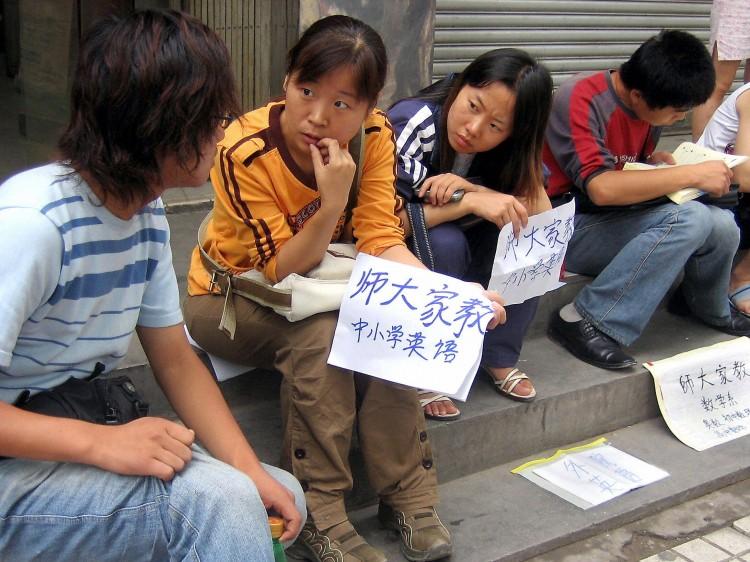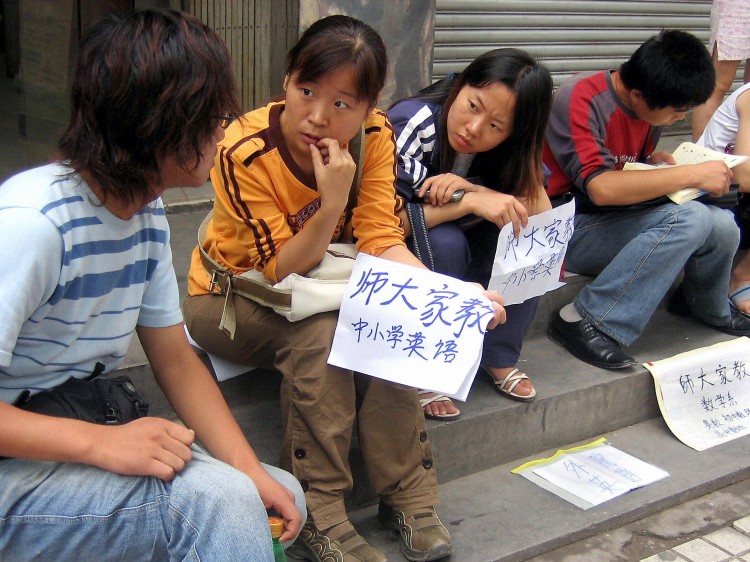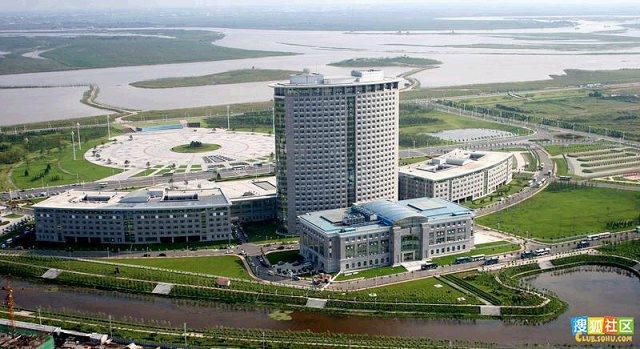The millions of college students who graduate in China each year now face this hard reality: a college diploma no longer guarantees a good job. According to a Hong Kong economist, there is no easy fix, as structural problems with China’s manufacturing-based economy limit the need for higher education.
Educators, analysts, and the state-run press have all commented recently on the plight of China’s college graduates. A 2012 Report by the Beijing-based education research company MyCOS Institute provides some numbers giving a rough sense of the size of the problem—experts agree that numbers relating to employment in China are generally not very reliable.
According to MyCOS, nearly 570,000 students who graduated in 2011 have not yet found jobs, which accounts for roughly 8 percent of the 7.58 million graduates for that year.
In addition to unemployment, there is also the problem of underemployment faced by China’s college graduates. The MyCOS report does not say how many of those who have jobs are doing work that is appropriate to their educational level, but the problem of college graduates working at jobs for which their degree is not needed has been widely discussed in the Chinese press.
Analysts believe that a decreasing demand for the labor associated with college degrees coupled with an increasing number of graduates has led to the current employment pressure, the Chinese regime mouthpiece Xinhua reported. Academic observers have attributed the cause of the employment problem to colleges recruiting too many students, according to the state-run China Daily.
Larry Lang, chair professor of finance at the Chinese University of Hong Kong, agrees with the common view that there is an oversupply of college graduates in China, but he goes beyond the generally accepted view in his diagnosis for why there is an oversupply.
In an article widely republished on Chinese-language websites, Lang links Chinese college graduates’ joblessness to the way in which China’s economy is set up by using his 6+1 economic theory.
According to the 6+1 theory, there is one hard production link and six soft production links in an industrial chain for almost any type of production. The hard link represents processing and manufacturing, and the six soft links consist of product design, raw materials procurement, logistics and transportation, order processing, wholesale management, and retail sales.
In this industrial chain, the processing–manufacturing link is the step in the labor process that creates 10 percent of the product’s value, and the other 6 links, vital in the value-creating process, create the remaining 90 percent.
Lang takes a Barbie doll as an example. A Barbie doll’s retail price is nearly $10 at Walmart stores in the United States. In this international industry chain, the 6 links owned by enterprises outside of China are responsible for $9 of that price, while the hard link, which is China’s manufacturing link, can only take credit for $1.
What is true of the Barbie doll applies to much of China’s economic output. Global economic competition is fierce, and the most profitable links in the chain of production are often not controlled by Chinese enterprises.
Lang’s explanation helps make sense of an observation made by Huang Teng, president of Xi'an International University and chairman of the board of trustees of the university. Huang told China Daily that in comparison with developed countries China has not too many but too few college students.
Because China, according to Lang, does not control the economic steps that follow upon manufacturing, its economy differs from those of developed countries.
Lang says that Chinese have mistakenly assumed that nurturing more college students will help the economy develop more quickly, without realizing that the premise of this theory is actually flawed.
According to Lang, in order for college graduates to find appropriate employment, China needs the six soft links in the industrial chain, rather than the one hard link.
Taking a factory as an example, Lang points out that from the manager to the security guard, no position requires a college degree for any of its workers.
Because the current industrial structure in China is primarily based on the one hard link, Lang concludes that this structure is the root cause of the unemployment and underemployment of college students.
The employment problem faced by China’s educated young people creates further distortions in the labor market. If students cannot find jobs after graduating from college, they may decide to continue their studies, gaining higher and higher degrees. Consequently, according to Lang, the students become even less likely to find a job that suits their educational level. The highly educated students may then eventually take jobs away from those who have less education, but whose education is more appropriate for the positions filled.
The Epoch Times publishes in 35 countries and in 19 languages. Subscribe to our e-newsletter.






